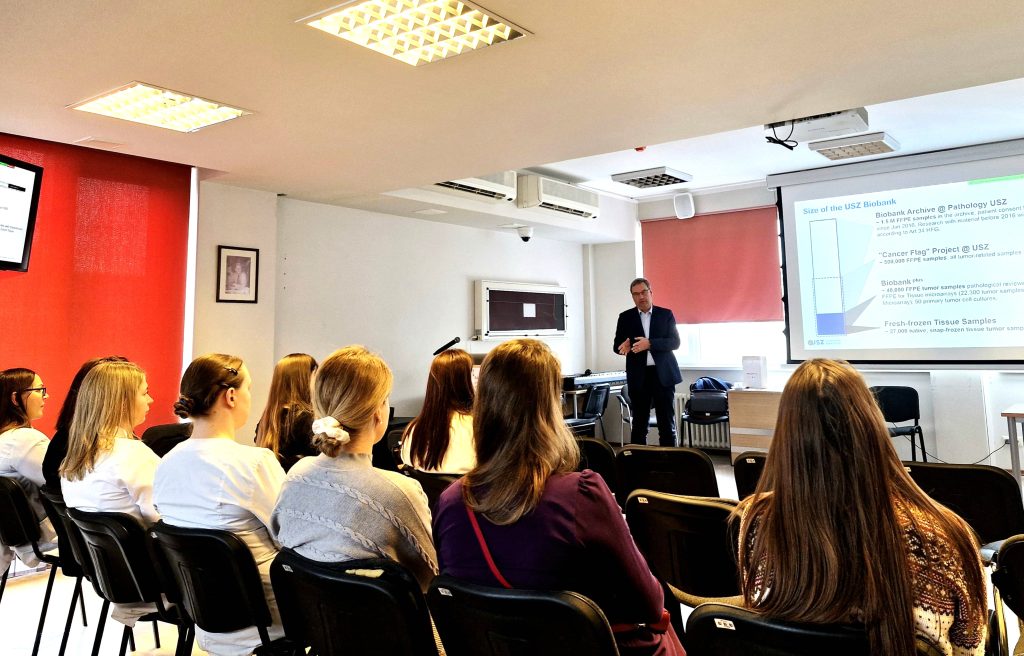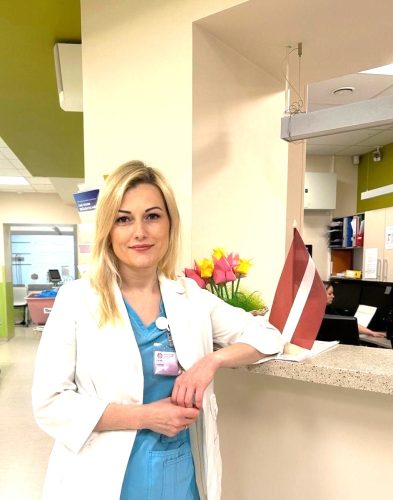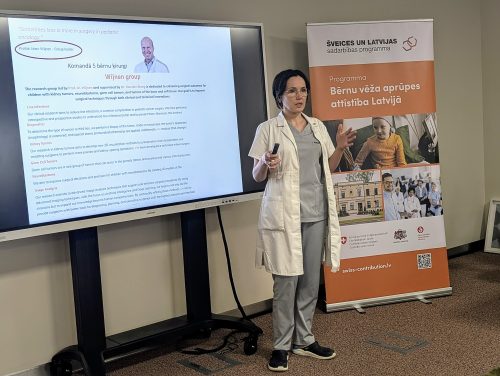Why Are Biobanks Important for Latvia? Experts Gather at the Children’s Hospital to Discuss the Future of Pediatric Oncology and Laboratory Development
On April 9, a discussion titled “Why We Need a Biobank and How to Manage and Organize Samples and Data: Laboratory Perspective and Experience” took place at the Children’s Clinical University Hospital. The event was held as part of the Swiss–Latvian Cooperation Programme “Advancement of Paediatric Cancer Care in Latvia,” launched in 2024, and brought together laboratory specialists, researchers, and precision medicine enthusiasts.
The central speaker was Dr. Martin Zoche, Director of the Molecular Tumour Profiling Department at the University Hospital Zurich and lecturer at the University of Zurich. He visited Children’s Clinical University Hospital to work closely with pathology and genetic laboratory experts to explore ways to introduce new diagnostic methods and improve existing processes. During the discussion, Dr. Zoche spoke about developing a sustainable biobank, the challenges of managing biological samples and data, and the future role of biobank and related data in diagnostics and research.
Biobank development is also gaining attention at the national level. The Latvian Parliament is currently reviewing Biobank Law that will define clear principles for the creation, operation, and data protection of biobanks.
“Biobanks are a cornerstone of precision medicine and are becoming increasingly important in treatment. With the upcoming European Health Data Space regulation, biobanks will become a key part of digital health—by 2030, patients will have access to their biobank data. Latvia still has a long road ahead, but everything starts with trust—trust in Children’s Hospital, which can become a national model, trust in learning from international expertise, and trust in our own laboratories,” said Aiga Balode, Deputy State Secretary of the Ministry of Health for Digitalization and Change Management.
Biobank Law is an important step toward modern, precision medicine–based healthcare. Biobanks are essential for personalized treatment and research. The Children’s Hospital is already advancing in this direction through the Swiss–Latvian Cooperation programme, working to improve the diagnostics, treatment, and follow-up care for children with cancer and rare diseases to strengthen laboratory capacity and improve clinical practice and research.
“Establishing a biobank at the Children’s Hospital is vital for both diagnostics and research. In diagnostics, it allows for the reuse of previously collected tissue samples. For instance, after several years, new diagnostic methods can be applied to older samples to gain additional insights into a patient’s condition or treatment outcomes. This makes it essential to preserve high-quality samples in biobanks. In research, biobanks offer a broad overview by providing multiple samples from the same disease type, helping us better understand disease identify new biomarkers, and conduct significant studies,” explained Dr. Martin Zoche.
During his visit on April 8–9, Dr. Zoche worked in close collaboration with Children’s Clinical University Hospital specialists to assess current laboratory practices, advise on process improvements, discuss equipment and technology upgrades, and develop steps for implementing digital pathology and future international cooperation.
“In pediatric oncology and rare diseases, it’s crucial for the Children’s Hospital to reach an international standard in a short time, so that in treatment, research, and planning, we are on equal level with our Swiss partners. That’s why Swiss expertise is so valuable—it gives us both practical knowledge and strategic confidence in how to move forward. I’m certain this collaboration will continue productively even beyond the five-year programme,” said Valts Ābols, Chairman of the Board at Children’s Clinical University Hospital.
The programme “Advancement of Paediatric Cancer Care in Latvia” is supported by Switzerland and aims to improve the diagnostics, treatment, and quality of life for children living with cancer or rare diseases. By focusing on knowledge exchange and system-wide improvements, the programme strengthens Latvia’s capacity in personalized medicine and contributes to the long-term development of high-quality healthcare.


Read more



